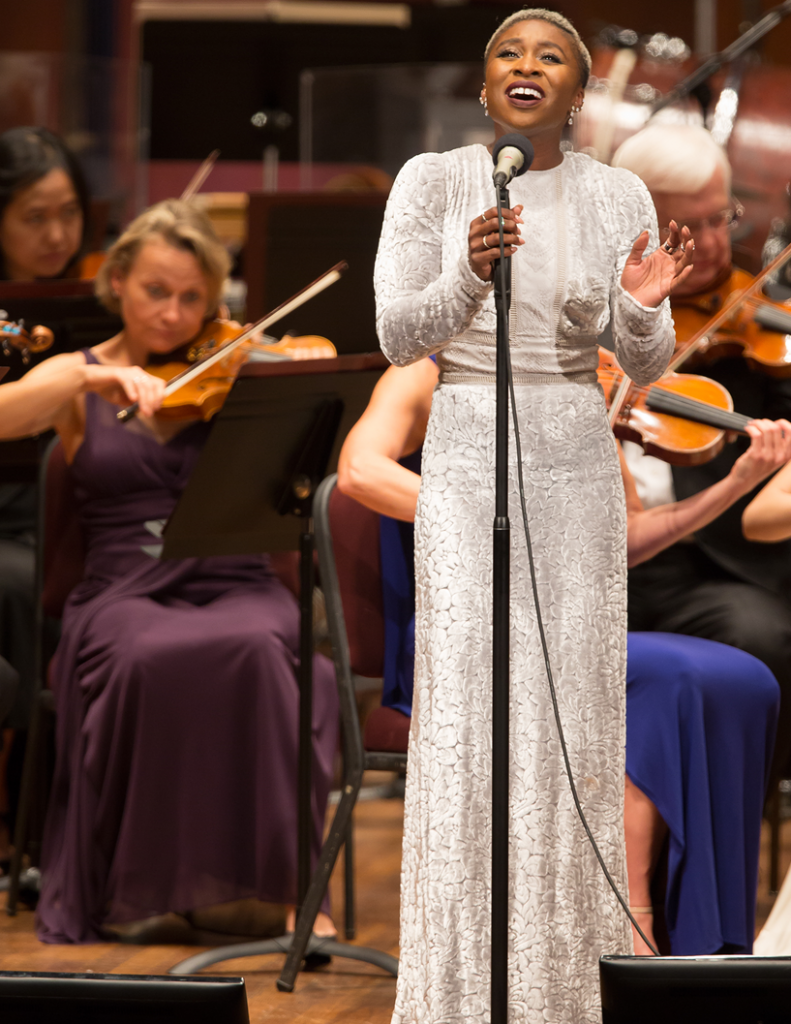National Symphony celebrates Noseda and Bernstein at the Kennedy Center

Gianandrea Noseda led his first concert as music director of the National Symphony Orchestra Sunday night at the Kennedy Center gala. Photo: Scott Suchman
On Sunday evening, the usual mix of elite Washington politicians, media figures, and socialites gathered for the season-opening gala of the National Symphony Orchestra. Interest ran high, driving fund-raising to nearly $2 million, a high point for this annual event.
The motivation, judging by the fulsome welcomes given by speaker after speaker, was the hope invested in the NSO’s new music director, Gianandrea Noseda. The Mayor of Washington, Muriel E. Bowser, even sent along a statement, having declared September 24, 2017, to be Gianandrea Noseda Day.
In a recent interview with Washington Classical Review, the Italian conductor spoke of his plans for his tenure, sentiments that he echoed in his own brief remarks during the concert. This program marking the legacy of Leonard Bernstein, whose 100th birthday will be commemorated next August, bore all the signs of the committed approach he said he wants to take. (A video recording of the concert is available at Medici.tv.)
The opening work, the Overture to Candide, was a little shaky on its feet, with the woodwind parts sticky in the details here and there because of Noseda’s impetuous pacing. Here and throughout the evening a number of trumpet solo slips were the only disappointment from the orchestra.
If the rest of the program focused on the popular side of Bernstein’s music, the Three Meditations from MASS included discordant sounds one might not expect on a gala program. Only a cellist with star power like Yo-Yo Ma could still fill the Kennedy Center Concert Hall playing such a work. His A-string intonation was not always perfect in the first Meditation, but Ma gave the piece dignity and pathos, befitting excerpts of the antic piece that Bernstein composed for the opening of the Kennedy Center in 1971.
Noseda and the NSO brought out the best in the saccharine harmonies of the first and third Meditations, especially the Latin-flavored dance of the last movement. Even the concert organ by Casavant Frères, donated by the Rubinstein family a few years ago, got in on the action, giving special liturgical weight to the First Meditation as played by Eric Schnobrick.

Cynthia Erivo. Photo: Scott Suchman
The evening’s high point was a set of songs from Bernstein musicals, sung with grace and authentic character by Broadway singer Cynthia Erivo. This is hardly surprising, since Bernstein’s greatest achievements as a composer were in the American musical form.
Erivo sang with amplification, the system adding some artificial reverb to her sound. Yet because she knows how to sing with a microphone and the music was made for it, the result was utterly charming and refined. She took in stride Bernstein’s occasional wanderings into a much higher range, as in “Lonely Town” (from On the Town), and her tone was consistently mellow and beautiful.
At the center of the set of five songs was “Take Care of This House,” a poignant piece from the failed musical 1600 Pennsylvania Avenue. In the show the African-American staff of the White House and President and Mrs. Adams sing this song together, urging the careful protection of the White House because “it’s the home of us all.” The air of warning in this piece gave greater impact to the hope of the song that followed it, “Somewhere” from West Side Story, rendered with utmost simplicity by Erivo and the NSO.
As in 1600 Pennsylvania Avenue, America’s continuing struggle with racial conflict was front and center in West Side Story, issues, sadly, as relevant now as they were in the 1950s and 1970s. Even the traditional playing of The Star-Spangled Banner at the start of the evening felt fraught with tension.

Photo: Scott Suchman
The closing selection, the “Symphonic Dances” from West Side Story, was perhaps a predictable choice in a Bernstein program, but Noseda led the NSO in an ebullient rendition that sizzled.
Noseda has performed this suite of music before, and it had the aura of familiarity, with the right sort of pop in the Latin-infused rhythms that permeate the score. Even the musicians’ shouts of “Mambo!” and the rhythmic finger snapping communicated an infectious joy. It was Gianandrea Noseda Day, after all, and the new music director made a stellar start on a new chapter in the history of the National Symphony Orchestra.
The NSO plays more American music, by Copland, Bernstein, and Adams this week, under conductor Cristian Măcelaru 7 p.m. Thursday and 8 p.m. Saturday. kennedy-center.org; 202-467-4600.